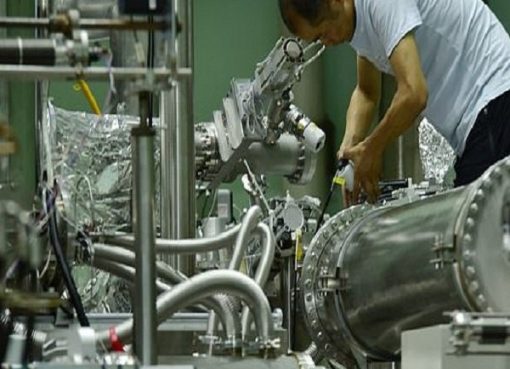Eleven offshore wind developers – BP, EnBW, Fred Olsen Seawind, Ørsted, Parkwind, RWE, Scottish Power Renewables, Shell, SSE Renewables, Total Energies and Vattenfall – are partnering with the Carbon Trust to make future offshore wind more sustainable.
The 11 developers collectively design, build and operate wind farms globally, including across Europe, North America and Asia, and represent around a quarter of global installed wind power capacity.
The firms will work in collaboration with the Carbon Trust as part of the new Offshore Wind Sustainability Joint Industry Programme to develop the first industry-backed methodology and guidance to measure and address the carbon emissions associated with offshore wind farms throughout their lifecycle, including emissions from the manufacturing of materials and installation of wind farms.
The aim is to help the global offshore wind industry scale as sustainably as possible and continue its key contribution towards meeting the world’s net-zero target by 2050, thus helping limit the most extreme impacts of climate change. A standardised methodology will ensure the scale of installation needed is delivered in a low-carbon way and encourage comparability across developers and assets.
This programme is the fifth addition to the Carbon Trust’s renewable energy innovation platform, which consists of a portfolio of R&D activities including the Offshore Wind Accelerator, the Floating Wind Joint Industry Programme, the Integrator and the Offshore Renewables Joint Industry Programme.
By the end of 2021, 55GW of offshore wind capacity was installed globally, with over a third of this being installed within 2021. However, according to the IEA, an additional 70-80GW will need to be installed every year from 2030 in order to achieve net zero by 2050.
As demand for renewable energy grows, the offshore wind industry needs to scale up rapidly to meet this level of ambition. This growth must be handled in a sustainable way. Building on the decarbonisation efforts at an individual wind farm level, a collaborative industry effort will be key to creating a consistent approach to account for carbon impacts, increase transparency of supply chain emissions and accelerate engagement across the value chain. This will support the delivery of the scale of installation needed, with the benefit of a strong understanding of lifecycle carbon emissions.
While offshore wind-energy generation has a significantly lower carbon impact than fossil fuels, the sector must also work collaboratively to de-couple its own value chain from carbon and resource-intensive models of production, deployment and operation, addressing key hotspots such as steel, cement and fuels.
“Over the last 14 years, we have been focused on scaling up the offshore wind market through our Joint Industry Programmes, such as the Offshore Wind Accelerator and the Floating Wind Joint Industry Programme.
“Now it’s time to turn our attention to supporting innovation and scaling up sustainably in order to create a more resilient and competitive industry. We are delighted to be collaborating with such a global set of developers, whose collective voice has the potential to take the industry to the next level.”
Ingrid Reumert, senior vice president, Ørsted, said: “Energy still accounts for 73 per cent of global emissions which makes a fast transition from fossil fuels to renewables the single-most important climate action. As our industry prepares for a massive and necessary build out of offshore wind farms, we must also pay attention to driving down emissions from supply chains and operations. This common methodology will help us do that as well as increasing transparency for governments, investors and suppliers, and enabling comparability across developers and assets.”
Catrin Jung, head of business unit offshore, BA Wind Vattenfall, said: “We want to accelerate fossil-free living with the power of renewables. Within that, we aim to be sustainable in everything we do, including the full value chain – how to achieve that? That is the challenge we are working on and we are ready to take it up! The Carbon Trust initiative will support us in our ambition and will also bring industry players from different parts of the value chain together to jointly achieve the goal of decarbonisation.”
The first project delivered as part of the Offshore Wind Sustainability Joint Industry Programme will:
- Develop the first standardised methodology to enable developers to calculate the lifecycle emissions of their offshore wind assets, including their upstream supply chain emissions, the construction phase and the operation phase.
- Engage with the industry to improve data quality and availability and promote greater supply chain transparency.
- Identify key carbon emission drivers and hotspots in the offshore wind value chain and wind farm life cycle.
The programme officially began this month, with the methodology expected to be released for use across the industry by 2025.
The Carbon Trust is a global climate consultancy driven by the mission to accelerate the move to a decarbonised future. It has been identifying climate concerns and pursuing solutions for over 20 years, partnering with businesses, governments and financial institutions to drive positive climate action. To date, the organisation has helped set over 200 science-based targets and guided more than 3,000 organisations and cities across five continents on their route to net zero.
Source: E&T










